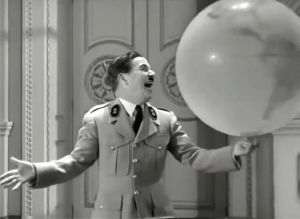The Romanian House of Agri-Food Trade "Unirea" represents one of the most ambitious and, at the same time, controversial government projects in Romania's agricultural sector, established in 2019 under the PSD government led by Viorica Dăncilă and with the support of the former Minister of Agriculture, Petre Daea. This project was designed to support small farmers and local producers to sell their products directly to consumers, without the intermediation of large retail chains, which often impose strict conditions and lower prices for producers, but it has faced problems over the years with several scandals, the most recent being the file instrumented by the prosecutors of the National Anticorruption Directorate which revealed a damage of over 40 million lei made by the former management together with several people.
Unfortunately, instead of following the last scandal that had a negative impact both on the stakeholders in the field and on citizens' trust in this economic agent, we witness the abolition of this state appropriator, Prime Minister Marcel Ciolacu and Florin Barbu, the minister Farmers obstinately want to prove that such an enterprise can work in the market economy, although significant sums from the state budget have been pumped into it so far, to no avail.
Casa de Comerţ Unirea was launched as part of a broader strategy to support the Romanian agricultural sector and protect traditional products. The central idea was to eliminate intermediaries and create a network of own stores, specialized in the sale of Romanian products. Petre Daea, Minister of Agriculture at the time of the launch, emphasized the importance of this project, stating:
"Through Casa de Comerţ Unirea, we offer Romanian farmers the opportunity to sell their products at fair prices, without being dependent on large retail chains or intermediaries. This is an essential step for protecting Romanian production and ensuring a decent living for small farmers".
The former president of the PSD, Liviu Dragnea, argued in March 2019 the establishment of the Unirea Chamber of Commerce: "We entered the European Union, very well, but we are not obliged to eat absolutely all the E's. I mean why would we have to? Maybe we can make agricultural products be processed more in Romania, because we are in a very beautiful situation, the wheat is being harvested... How is our wheat coming back? Wafers, crackers, frozen bread. We take this much on the wheat and pay this much when the wafer comes, that's it. We are no longer able to make wafers, because we are stupid? You mean we are lazy? No way; the lazy one is Iohannis, not us".
• The purpose of establishing the Unirea Trading House: supporting small producers in the agri-food sector
The project was established by Government Decision no. 933/2018 and had an initial share capital of 93 million lei, allocated from the state budget. This money was intended both for the development of the store network and for the construction of centers for the collection, storage and processing of agricultural products. The opening of a number of 80 stores nationwide is expected, through which small producers can sell products such as vegetables, fruits, meat, dairy, eggs and other domestic agri-food products.
The project promised to give farmers the opportunity to sell quality products at fair prices, thus ensuring a stable market for them and reducing the risks related to dependence on large retail chains, which dominated Romania's agri-food market. Among the initial objectives of Casa Unirea were:
- Supporting small farmers by offering a safe channel for selling their products;
- Promotion of Romanian and traditional products, especially on foreign markets;
- Reducing dependence on imported products and increasing the competitiveness of domestic production;
- Development of logistics centers to ensure efficient collection, storage and transportation of products.
From the beginning, the project encountered major problems related to poor management and the lack of a clear implementation strategy. In 2019, Casa Unirea recorded substantial financial losses, the estimates being 7.2 million lei for that year. In 2020, losses continued to grow, increasing by 5.4 million lei, and some of the open stores were closed due to lack of profitability.
These problems were mainly caused by the lack of a solid logistics infrastructure, which led to delays and problems in the delivery of products. It was also discovered that certain stores in the network started selling imported products, contrary to the initial mission to promote exclusively Romanian products.
• The Liberal government criticized the Unirea Trading House, but did not abolish it
Normally, the financial situation is a disaster and the and the violation of the purpose for which it was established, should have led to the dissolution, also by GD, of the Unirea Chamber of Commerce, but the liberal government from 2020-2022 did not do this, although among the biggest critics of the project included former prime minister Ludovic Orban, who accused the PSD government of "mismanagement of public money" and described the project as "doomed to failure due to a lack of transparency and a clear vision". Orban stated that "the state does not have the necessary competence to effectively manage such a commercial project and that the allocated funds have been wasted."
Ludovic Orban said: "The time for refreshments has passed. For Romanian producers, we must ensure equal conditions of access to the market, but I believe that the state should not take care of this actual trade activity. We need clear regulations to ensure access to the market for domestic producers, and if these rules are respected there is no need to redo the assessments".
Adrian Oros, the Minister of Agriculture in the Orban government, described Casa Unirea as "a total failure, the result of a populist policy", emphasizing that the project was launched without a viable financial plan and without preparing the necessary infrastructures to support the activity.
Adrian Oros said at the time he held the position of Minister of Agriculture in the Orban government: "The time of GOSTATs has passed. Of course, for Romanian producers, we must ensure equal conditions of access to the market and on this, you know well, that we were the active supporters of a draft law, which we hope will be put into practice, moreover it is also one of the points that exists in the government program. I did not agree with this project even when I was in the Commission for Agriculture, it does not seem to me a serious thing that can solve a problem. The explanation was that local and traditional products will be promoted through these stores. In my opinion, local products should be promoted in the place where they are produced, and traditional ones elsewhere. It does not seem to me that the establishment of this trading house had an economic and social impact".
Oros criticized the fact that the money invested in Casa Unirea was wasted and that, instead of supporting farmers, the project generated substantial losses for the state budget. "We found a structure unable to achieve its goals, with a network of stores selling imported products and without a clear plan to support local producers," said Adrian Oros during a press conference, which he held during the period in which he led the Ministry of Agriculture and Rural Development.
Orban's successor as prime minister, Florin Cîţu, instead of abolishing this trading house - as Ludovic Orban promised in November 2019, chose to continue the activity and appointed two state secretaries to the Board of Directors of Casa Unirea, because it was about "a national joint-stock company, of national interest, with full state capital, and the rights and obligations arising from the state's shareholder status are exercised by the Ministry of Agriculture and Rural Development" according to the memorandum approved in this regard.
In the cited document it was also stated that the purpose of the respective trading house "is to create a functional commercial mechanism that leads to the superior exploitation of national agricultural resources and production".
• Regulatory acts dedicated to Unirea Trading House, collaboration with big retailers
With the takeover of power by the PSD-PNL coalition, the social-democratic ministers who dealt with Agriculture decided to maintain this trading house even if the activity was not carried out according to the original purpose declared by the normative act of establishment. Both Adrian Chesnoiu and Florin Barbu argued that such a project can be viable, that it will have the role of maintaining decent prices for Romanian agri-food products, that it will be a balance between large retailers and farmers and agricultural producers.
Moreover, in order to support the Unirea Trading House, even if he officially denied this, Minister Barbu promoted two normative acts - a law and a government decision implementing the law - through which the participants in the entire commercial chain in the field agri-food (agricultural producers, warehouses, processors at national level and traders - in the last category including distributors) are obliged to report monthly the stock of these products to the Ministry of Agriculture and Rural Development. It is about law 105/2023 and HG 880/2023, which established that following this report, the Ministry of Agriculture and Rural Development will develop support measures in order to: increase domestic production of agri-food products; stimulating the domestic production of processed products similar to those imported; drawing up the peacetime and wartime mobilization plan; increasing the volume of processed products with high added value intended for export; increasing the supply of new Romanian agri-food products intended for export.
Law 105/2023 specified in Article 6 that public subsidy policies in the agri-food sector will be established based on the statistical data of the centralized agricultural and food stocks.
The two normative acts were harshly criticized by the private business environment, which showed that public policies are not established monthly and requested that the respective reporting be done annually or at most semi-annually. Moreover, entrepreneurs in the agri-food sector and traders drew attention to the fact that the data collected by the Ministry of Agriculture and Rural Development did not provide the necessary protection and that the Unirea Agro-Food Trade House could benefit from the monthly centralized situation the sole shareholder is the Romanian state through MADR, which may know where it can quickly supply certain products at the expense of other traders in the free market.
Sources from the private business environment told us that at one of the meetings they had last year with Prime Minister Ciolacu and Minister Florin Barbu, there were voices from their ranks who told the two officials that, following approval of the two normative acts, all that remains is for the Minister of Agriculture to put on an apron, go beyond the counter and sell the agri-food products of the Unirea Trading House, even stating that the said company is unfairly competing with the activities carried out by small businesses and middlemen in this field.
Despite these well-founded criticisms, the National Society "Casa Română de Comerţ Agroalimentar Unirea" S.A. inaugurated on December 18, 2023 the first cash&carry in a network designed to cover all regions of the country. The 2,500 square meter unit is located in the Doraly complex in Afumati and announced at the inauguration that it sells 10,000 products and practices commercial additions of 10-12%, given that through two emergency ordinances - adopted in July and October - the Ciolacu government last year limited to 20% the commercial mark-up at large and small retailers on 14 basic agri-food products and to 5% on the entire distribution chain.
The launch of this first cash&carry store took place after, in May 2023, the general director of the Unirea Trading House, Mariana Cotoi, announced that, in order to capitalize on Romanian production, the company she leads concluded several partnerships with Carreforu, Metro, Kaufland, Profi and Penny. That is, exactly with the big retailers against whom the whole project was started. Clean-dirty, coane Florin Barbu, Ion Luca Caragiale would have said!
We would have expected that following the statement of the lady in question, given the fact that one of the objectives of the Unirea Agro-food Trade House was violated, we would witness the abolition of this economic agent, but Florin Barbu and Marcel Ciolacu decided to go as far as the blank canvases with the failed project started by Petre Daea and Liviu Dragnea.
• DNA reveals the financial mess behind the counter of Unirea Trading House
Since Prime Minister Marcel Ciolacu and Minister Florin Barbu did not want to bring order to the Unirea Chamber of Commerce, the anti-corruption prosecutors entered the wire and opened an investigation file in rem (on the facts) in 2023 regarding the activity of this economic agent. The criminal investigation was carried out successfully since in the middle of last week the National Anticorruption Directorate announced through a press release that it had ordered the initiation of criminal proceedings against the defendants Mariana Cotoi, former general manager of the National Society "Romanian House of Agri-Food Trade UNIREA" S.A., for committing the crime of abuse of office, and against three administrators of other commercial companies for committing the crime of complicity in abuse of office.
According to the anti-corruption prosecutors, in the period from January to December 2023 (that is, throughout last year), Mariana Cotoi "would not have performed a good financial management to ensure the legality, regularity, economy, effectiveness and efficiency of the operations, exercising her -trusts the mandate of general director, contrary to the company's interests and in the absence of any prudence and diligence specific to a good administrator in terms of concluding contracts and carrying out operations" between Casa de Comerţ Unirea and several commercial companies.
The DNA prosecutors state that the general director would have used Casa de Comerţ Unirea as an intermediary between companies acting as seller/buyer, thus creating a financial circuit that turned out to be fictitious and that would have led to the damage of the state trading company, with approximately 45 million lei. As an example, the prosecutors show that a commercial company would have launched an offer through Case Unirea SA for the purchase of a quantity of 116,250 cans of sunflower oil per 1 liter, an offer accepted by another commercial company managed by one of the defendant administrators who offered to sell 23,250 bottles of sunflower oil per 1 liter. In the DNA press release it is stated: "On 14.08.2023 the defendant Cotoi Mariana would have approved the transactions, on which occasion it would have been indicated to practice a commercial addition of 4%. Thus the defendant M.V.A. would have issued two invoices to the Romanian House of Agroalimentar Commerce UNIREA S.A. in the total amount of 315,315 lei and having as its object the quantity of 23,250 bottles of sunflower oil 1L, as well as the goods accompanying notices, although the supplying company did not own these goods and had not made the deliveries that were the subject of the two goods accompanying notices . Later, although no representative of Case Unirea would have received the goods or even seen them to make sure of the reality of the operation, the defendant Cotoi Mariana would have confirmed the operations by signing the two invoices and the notices accompanying the goods related, and would even have issued two declarations of conformity regarding the sanitation of the products".
For these facts, for Mariana Cotoi and her three accomplices, at the end of last week the judges of the Bucharest Court ordered preventive arrest for 30 days.
What emerges from the DNA statement is the fact that the funds allocated for the development of logistics centers and the support of farmers were redirected to friendly companies, and the money intended for infrastructure investments was used for fictitious purchases. Also, DNA discovered that part of the funds were used for the purchase of imported products, which were sold in Unirea stores as Romanian products, facts for which in a democratic state the respective economic agent would have been abolished as well how quickly it was established.
• Ciolacu and Barbu, the protectors of the Unirea Trade House
Instead of proposing to the Government to abolish Casa de Comerţ Unirea, Florin Barbu - the Minister of Agriculture and Rural Development continues to believe in the project initiated by Petre Daea, even if he sent the Control Body from MADR to investigate the irregularities discovered.
Florin Barbu stated that "the failure of Casa Unirea is due to poor management of funds and the lack of investment in the necessary infrastructure", stressing that "logistics centers were not given due attention", which led to major problems in the operation of the network. He promised that the Ministry of Agriculture would do everything possible to recover the damages caused and that he would work with the authorities to ensure that those responsible are held accountable. The Minister of Agriculture also announced that he has a plan to relaunch the project, which includes the development of a network of 15 regional logistics centers and the improvement of collaboration with retail chains, to ensure efficient distribution in the distribution system of local products. The minister emphasized that "major investments in collection and processing centers are needed for farmers to have real access to the market" and that only through a deep reform of the structure of the Unirea House could the project become viable. "Casa Unirea's success depends on our ability to negotiate fair prices with retailers and ensure a sufficient amount of products throughout the year," said the minister.
For his part, although Prime Minister Marcel Ciolacu had a firm reaction to the scandals related to Casa Unirea, noting that "those responsible for the embezzlement of funds will be held accountable", he stated that the Government will take drastic measures to relaunch the project and emphasized the need for better collaboration between state institutions and local producers. The Prime Minister also added that "the Casa Unirea project was a failure due to corruption and incompetence, but the government will make every effort to correct these mistakes."
From all the above information, however, only one fact emerges:
The Romanian House of Agri-Food Trade "Unirea" was sold as a beautiful dream to farmers by the Liviu Dragnea-Petre Daea couple, with the support of Prime Minister Viorica Dăncilă, as an ambitious project aimed at supporting local farmers and ensuring a stable market for Romanian products , but management problems, corruption and a lack of adequate investment in logistics infrastructure led to a major failure, culminating in corruption investigations and substantial financial losses. And this, because the state does not understand that in a market economy it has nothing to look for in the agricultural trade.



















































